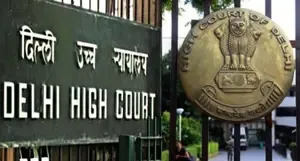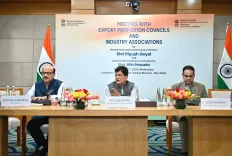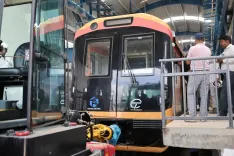Has the Delhi HC Ordered the Release of Pending Subsidies Under the Electric Vehicle Policy?

Synopsis
Key Takeaways
- Delhi High Court mandates quick release of pending subsidies.
- Approximately Rs 48 crore in subsidies are overdue.
- Establishment of a separate bank account for direct transfers.
- Importance of maintaining public trust in governance.
- Supports environmental goals and adoption of electric vehicles.
New Delhi, Sep 3 (NationPress) The Delhi High Court has mandated the city government to swiftly disburse pending subsidy funds to qualified electric vehicle purchasers in accordance with the Delhi Electric Vehicle Policy, 2020. The directive came from a Bench led by Chief Justice Devendra Kumar Upadhyaya and Justice Tushar Rao Gedela, who were reviewing a public interest litigation (PIL) lodged by Jan Seva Welfare Society, an NGO advocating for the implementation of the subsidy framework.
The PIL underscored that the delay in releasing subsidy payments, totaling around Rs 48 crore, despite numerous requests, has inflicted considerable difficulties on the beneficiaries. The court pointed out that the Delhi government could not use the absence of specified timelines in the EV Policy as a reason for the undue delays in subsidy distribution.
The court further instructed the city administration to establish a distinct bank account dedicated to directly transferring subsidy amounts to beneficiaries, thereby streamlining the process and eliminating unnecessary holdups.
“We anticipate that procedural delays will be addressed immediately and that payments will be made promptly once the new bank account is operational,” the Delhi High Court stated.
According to the PIL, the failure to release subsidies under the EV Policy has eroded public confidence in governance, as it contradicts clear policy assurances.
“The lack of action from authorities constitutes a breach of constitutional rights, violating Article 14 by acting arbitrarily against eligible beneficiaries and infringing upon Article 21 by obstructing the right to a clean and healthy environment,” it added.
The plea argued that the non-payment of subsidies hampers environmental initiatives, discouraging the adoption of zero-emission vehicles and undermining efforts to decrease vehicular pollution, thus failing to meet India’s commitments under the National Electric Mobility Mission Plan (NEMMP) and the National Action Plan on Climate Change (NAPCC).







